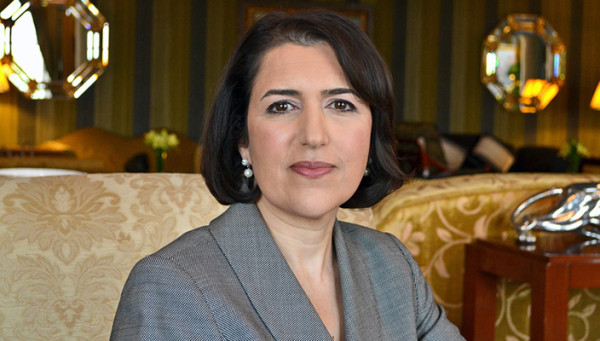1.8 million.
That’s how many foreign refugees the Iraqi portion of the Kurdistan region cares for. A region of about 15,692 square miles and only 5 million native people has found itself with an extra 1.8 million people seeking refuge.
According to Kurdistan Regional Government Representative to the United States Bayan Sami Abdul Rahman, Kurdistan’s volunteer army, the Peshmerga is fighting for the Kurdish cultural tradition of equality and freedom rather than for Iraq or ISIS, despite a severe lack of resources.
“Today because of the economic crisis we have in Kurdistan, many Peshmerga are not paid for five months at a time,” Rahman said. “They’re facing great financial hardship and their families find it difficult to pay the rent and put food on the table, and yet the Peshmerga still continue to fight against ISIS.”
In 2014, ISIS attempted to attack and take control of Kurdistan Region’s capital of Erbil. It engaged in a campaign of genocide against several religious and ethnic minorities.
“Fortunately, at that moment in 2014, President Obama ordered airstrikes and the airstrikes changed everything,” Rahman said. “We knew the United States was with us and would not leave us to face ISIS alone.”
Since August 2014, the Peshmerga has been able to push ISIS out of all the Kurdish areas of Iraq, with the help of U.S. airstrikes.
Although the United States and coalition forces continue to provide weapons and training to the Peshmerga, Rahman has asked the government on behalf of Kurdistan for more advanced weaponry and direct military trade.
“We are carrying very light weapons. We cannot fight against tanks and armed vehicles with this kind of weaponry,” Rahman said. “So we’re asking for weapons that can match what ISIS has and we’re asking for the weapons to be delivered directly to Kurdistan so we do not have to go through Baghdad.”
Rahman went on to address Kurdistan’s longstanding history of friendly relations with the United States, as well as the region’s promotion of democracy, women’s rights and freedom of expression.
The event, entitled “An International Briefing about ISIS and the Refugee Crisis,” was attended by well over 100 community members and students.
“Events like this are so inspiring because we get to learn about regions that have gone through so many genocides and have been war-torn through so many years, and yet when it’s time for them to step up, they show compassion to these same people that have put them in so many difficult positions,” said Lipscomb student Veronica Bernaba. “They never close their doors and it’s a beautiful thing to see that a people group that is a minority in the Middle East is the main group that’s fighting terrorism and fighting ISIS.”
For Director of Congressional and Academic Affairs Remziya Suleyman, helping to coordinate the event was akin to a homecoming.
“Even though I work for the Kurdistan Regional Government, which is my ethnic homeland, Nashville gave me a home. Nashville is my first official home that I ever knew,” Suleyman said. “So anything I can do that might help bring collaboration or partnership to Nashville, I do, no matter what position I’m in.”
Before the end of her briefing, Rahman expressed Kurdistan’s desire to be “the strategic partner the United States is looking for the in the Middle East,” and addressed potential future relationships the two regions might eventually share.
“Today, we’re engaged in a war together against extremism and ISIS, but I want us to look beyond that,” Rahman said. “We will defeat ISIS, but what about the future relationship between Kurdistan and the United States? We should be thinking about cultural exchanges, university exchanges and business relations for the years to come.”
Photo courtesy of the Tony Blair Faith Foundation

